This code example uses 3 time zones (EST, PST, EET). For each Time Zone, a Date object is created and the toString() is run to print out the format being used. Then this same String value is passed to a Constructor and used to create a new Date Object. The code does run a check to ensure the Time Zone being used is valid.
All 3 Time Zones (EST, PST, EET) are valid but when creating the object, the java.lang.IllegalArgumentException is returned only for EET.
import java.util.*;
import java.text.*;
public class DateTest
{
public static void main (String[] args)
{
System.out.println("=======Test 1 : using EST=======");
isValidTimeZone("EST");
TimeZone.setDefault(TimeZone.getTimeZone("EST"));
runTest();
System.out.println("=======Test 2 : using PST=======");
isValidTimeZone("PST");
TimeZone.setDefault(TimeZone.getTimeZone("PST"));
runTest();
System.out.println("=======Test 3 : using EET=======");
isValidTimeZone("EET");
TimeZone.setDefault(TimeZone.getTimeZone("EET"));
runTest();
}
private static void isValidTimeZone(String tz)
{
String[] validIDs = TimeZone.getAvailableIDs();
boolean validTZ = false;
for (String str : validIDs) {
if (str != null && str.equals(tz)) {
validTZ = true;
break;
}
}
if (validTZ)
{
System.out.println(tz + " is a Valid Time Zone");
}
else
{
System.out.println(tz + " is **NOT** a Valid Time Zone");
}
}
private static void runTest()
{
try
{
String myDateString = new Date().toString();
System.out.println(" Default Date String : " + myDateString);
MyObjectWithADate myObject = new MyObjectWithADate(new Date(myDateString));
}
catch(Exception e)
{
System.out.println(" Object NOT Created!!!!!");
e.printStackTrace(System.out);
}
}
}
public MyObjectWithADate (Date eventDate)
{
System.out.println(" Passed in Date : " + eventDate.toString());
// this.eventDate = eventDate;
try {
this.eventDate = DateFormat.getInstance().parse(eventDate.toString());
System.out.println(" Object Created");
} catch (ParseException e) {
System.out.println(" Object NOT Created");
e.printStackTrace();
}
}
}
Here is the output.
Based on the Java 11 docs, it does comment that Date is deprecated and that DateFormat.parse() should be used.
As a test, the code for the Object was modified to use DateFormat.parse but this only made matters worse.
public MyObjectWithADate (Date eventDate)
{
System.out.println(" Passed in Date : " + eventDate.toString());
// this.eventDate = eventDate;
try {
this.eventDate = DateFormat.getInstance().parse(eventDate.toString());
System.out.println(" Object Created");
} catch (ParseException e) {
System.out.println(" Object NOT Created");
e.printStackTrace();
}
}
}
Here are the new results.
Questions 1 : From which environment variable does the JVM obtain the timezone?
Questions 2 : Using the original code, why does the Exception occur when it is using the same format as the one provided by the JVM?
Questions 3 : What specifically is it about EET that causes it to fail yet EST and PST and be swapped without issues?
Questions 4 : If I want to allow the original code to be run by anyone in any Time Zone, what needs to be changed?
EDITED TO ADD THE FOLLOWING :
The above code is a scaled down model. Unfortunately the actual code can not be modified in all places to change from using the Date object.
I did run another test using the SimpleDateFormat within the MyObjectWithADate object. This once again works for the EST and PST but not the EET.
class MyObjectWithADate
{
private Date eventDate;
public MyObjectWithADate (Date eventDate)
{
System.out.println(" Passed in Date : " + eventDate.toString());
String datePattern = new String ("E MMM dd HH:mm:ss z yyyy");
SimpleDateFormat simpleDateFormat = new SimpleDateFormat(datePattern);
try {
this.eventDate = simpleDateFormat.parse(eventDate.toString());
System.out.println(" Object Created");
} catch (ParseException e) {
System.out.println(" Object NOT Created");
e.printStackTrace();
}
System.out.println(" Object Created");
}
}
I am starting to think that my original question should have been, how to take the following String
Fri Mar 26 21:42:52 EET 2021
and place it into a Date object.

